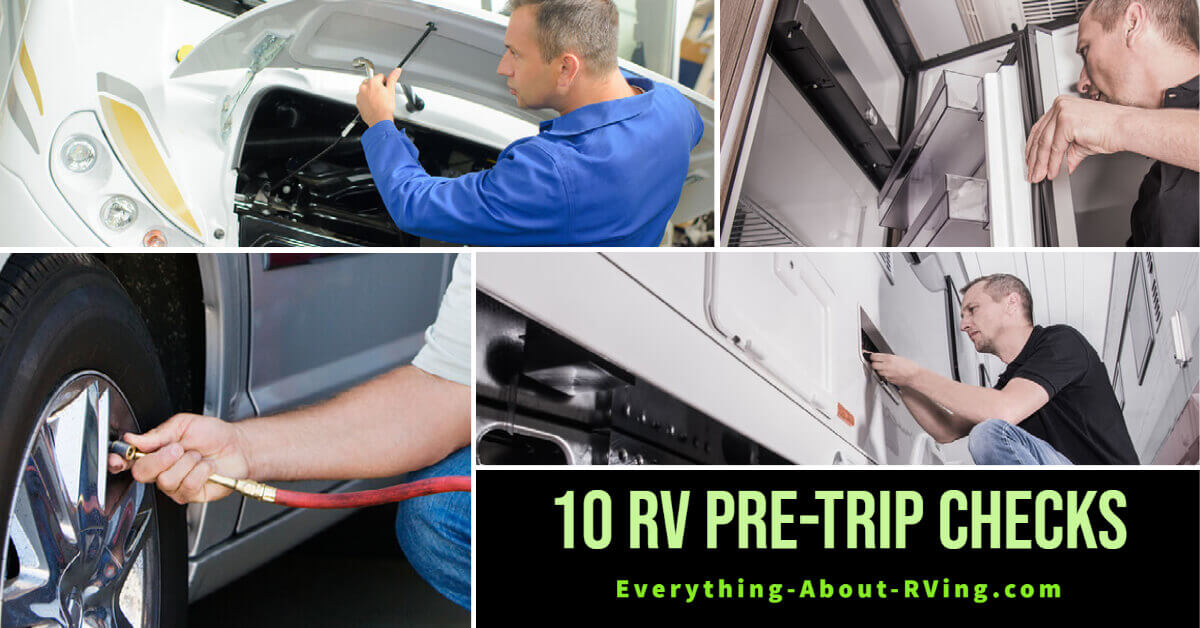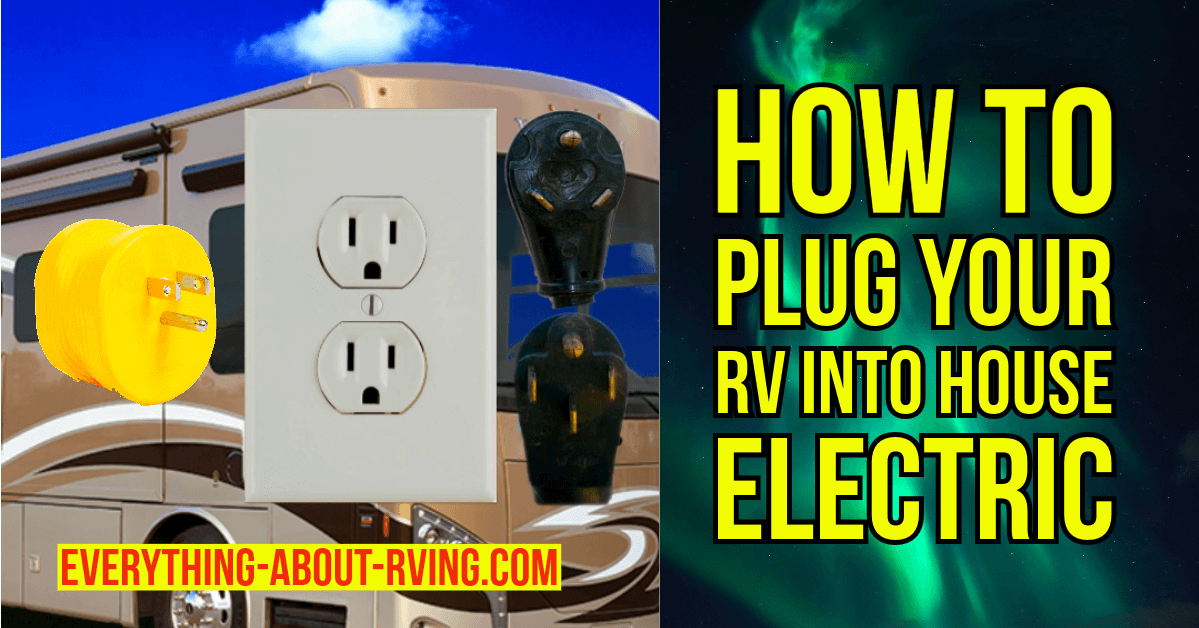- Home Page
- RVing Tips & Tricks
- Pre-trip
10 Pre-trip Operational Checks for Your RV
By: Jason Stroffoleno & Jasmine D
Here are ten essential pre-trip checks to keep you on the road
No matter how much you prepare your RV for a road trip, there always seems to be at least one thing, often something obvious, that is overlooked. The following are ten essential pre-trip checks to keep you on the road!
10. Turn on the refrigerator at least 24 hours prior to your departure. This will allow plenty of time for cooling and help you detect any issues.
9. Make sure that the gray and black water tanks have been emptied and the appropriate chemicals have been added. The less waste in the tanks the lighter your rig will be however, leaving at least ¼ of a tank of water will help the chemicals dissolve.
8. Flip your switches! Switches for your tanks, water pump, propane and appliances should all be in working order. Broken switches can be replaced cheaply and easily.
7. Fire up your generator, even if you won’t be using it. Let it run for at least 15 minutes and check for oil or gas leaks. If your generator has an altitude adjustment, make sure that it is set appropriately.
6. Top off your propane tanks. Keeping your tanks full (no more than 80%) will prevent interruptions to your heat, hot water, or stove. Although many campgrounds offer propane services, it may be difficult to find convenient fill up stations while boondocking.
5. Fill your freshwater tank ¼ to ½ full if you intend on using any water while enroute to your destination. Visually inspect your toilet, shower, and faucets to ensure they are functioning properly and there aren’t any leaks.
4. Test all external lights to confirm they’re working. Check all inside lights and make sure you have extra bulbs and fuses on hand. Some bulbs may be unique and tough to find at a regular department store.
3. Check your engine and generator fluids. Making sure that your oil, transmission, brake, radiator, and other fluids are topped off and/or changed as needed before you leave will minimize surprises down the road.
2. Inspect your tires!! Each tire should be in good condition, with proper inflation and no noticeable damage. Your tires are carrying the weight of your rig, gear, tanks, and passengers so regular maintenance is essential to help reduce blowouts or other damage while on the road.
If your RV has been in storage or in the same position for an extended period, you may experience damage to the tires’ chemical makeup. Additionally, prolonged exposure to the elements will reduce UV protection, which can cause cracking and dry rot.
Good Sam members enjoy instant discounts on fuel. Join Today!
1. Know where you’re going. We’ve got three letters for you: G P S! If you don’t have one, have your atlas, maps, and directions handy. Research height and weight restrictions as best you can before you leave. Otherwise, you could end up with a boat or a convertible!
The most important part of any trip is to HAVE FUN! By being prepared, you’ll always be on the way to your next destination. See you on the road!
About the Authors:
We are Jason Stroffoleno & Jasmine D, otherwise known as J&J. Part time RVers and full-time dreamers, we purchased our first RV, a 1994 Fleetwood Tioga named Lady T, in 2013. We love camping, traveling, and sharing our adventures on our blog, Along the Way with J&J.
Check out our Facebook page at https://www.facebook.com/alongtheway2014
Return to the RV Lifestyle Articles Page from the 10 Pre-trip Operational Checks for Your RV Page



